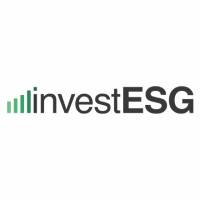Striving for sustainability in global food systems | GRI

© Margarita Lysenkova, GRI
By Margarita Lysenkova, Manager – Sector Program, GRIAs the global community gears up for the 2021 UN Food Systems Summit, it is significant that preparations are also underway by Global Reporting Initiative (GRI) to deliver a new sector reporting standard for agriculture, aquaculture, and fishing.The Summit aims to leverage the power of food systems to deliver progress on the Sustainable Development Goals (SDGs). Yet, unlocking the contribution of companies in the food production sectors will be impossible without clarity on their sustainable development impacts.Research and rationaleThe draft Standard’s content is the culmination of more than 12 months of rigorous research by our Sector Team, drawing on authoritative sources and a multi-stakeholder process. A 19-member expert working group was instrumental in developing the exposure draft. Reflecting diverse backgrounds, it includes representatives from five continents and constituencies, with a unique combination of sectoral skills and organizational experience, including crop and animal production, aquaculture, and fishing.By including topics not covered by existing GRI Standards, we have expanded the breadth of reporting guidance for agriculture, aquaculture, and fishing organizations to identify their most significant impacts – thereby supporting decision-useful data that can be a catalyst for the adoption of more sustainable practices.The seven new topicsThe newly introduced topics in the draft Standard are:
- Food security recognizes the sectors’ central role in food production, guiding organizations to describe commitments to ensure their operations contribute to stability of food supply and access to food, including how they work with other organizations.
- Land and resource rights calls on companies to report how they respect individuals’ and communities’ land rights (including those of indigenous people). It also asks about their operations and suppliers whose access or rights to natural resources cannot be assured.
- Living income addresses whether companies provide enough for workers and producers supplying to them to afford a decent standard of living. The topic also deals with reporting on the proportion of employees paid above living wage.
- Natural ecosystem conversion covers policies, commitments and monitoring tools to reduce or eliminate activities that change natural ecosystems to another use or profoundly change an ecosystem’s structure or function.
- Soil health guides reporting on soil management plans and fertilizer application.
- Pesticides use focuses on how organizations manage and use chemical or biological substances for controlling pests or regulating plant growth.
- Animal health and welfare addresses the approach to animal health planning and use of welfare certification schemes or audits, as well as disclosing the use of any medicinal or hormone treatments.
investESG.eu is an independent and neutral platform dedicated to generating debate around ESG investing topics. All opinions expressed are those of the author or contributing source.

